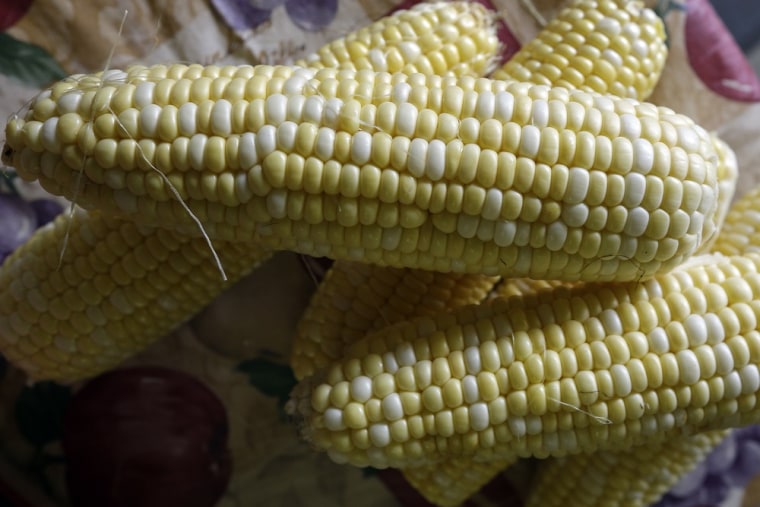Belarus, Russia -- and now China -- are involved in a tussle for control of a valuable commodity that determines the cost of the food on your plate.
Potash, a mineral which has long been used as a soil fertilizer, is usually a reassuringly boring commodity. But the squabble between Russian company Uralkali, the world's biggest potash producer, and its Belarusian partner has ignited interest in the market and sent prices into freefall – which could ultimately mean cheaper food.
CIC, China's sovereign wealth fund, bought a 12.5 percent stake for an undisclosed sum in Uralkali Tuesday, giving them a seat on the board and an even closer interest in potash – China is already one of the world's biggest importers of the commodity. While the fund already had the option to take the stake, CIC's move was earlier than expected.
CIC is stepping into a fierce dispute between Uralkali and the government of Belarus that has already seen the company's CEO arrested and caused the price of potash to tumble.
The overall market for potash is worth around $20 billion annually and around 50 million tons are produced every year, most of it in Canada, Russia and Belarus.
While the cost of potash is only one of multiple factors affecting the cost of food, large swings can affect the price of commodities like corn and sugar. Uralkali controls around 20 percent of the market. Its production costs are lower than many of its competitors because of its location, so it should be in a better position to undercut the market. This is one of the reasons the share prices of the major North American potash producers, PotashCorp, Mosaic and Agrium have suffered since the summer.
There is currently a global surplus because many companies ramped up production while food prices were at their highest. Prices have been hovering around $400 a ton for much of 2013 – until the dispute in Belarus blew up.
(Read more: Potash powerhouse crumbles)
Earlier this year, Uralkali, led by Dagestani tycoon Suleyman Kerimov, ended its partnership with Belarusian state-owned Belaruskali, its partner in Belarusian Potash Co (BPC). BPC controlled around 40 percent of the global market and, because of this share, had great deal of influence on the price of potash.
There are disagreements as to why Kerimov broke up the lucrative agreement. Sources at Uralkali argue that the final straw was the Belarus government passing a law allowing Belaruskali to sell potash outside BPC.
Potash industry sources argued that Kerimov wanted to drive prices lower for a short time to corner the Chinese market, and make up for lower prices through a greater volume of sales.
A spokeswoman for Uralkali confirmed the CIC sale, but declined to comment further.
Following the break-up of BPC, Vladislav Baumgertner, Uralkali's chief executive, was arrested in Belarus last month following a meeting with Belaruskali and has languished in jail for weeks.
To compound matters, Belarus has since removed export duties on potash.
(Read more: Global leaders tackle growing strain on natural resources)
All this has sent the price of potash tumbling, down 10-15 percent on the start of the year. Governments like India, Brazil and China negotiate several big deals a year, and early signs are that they will be pitching for lower prices again in the next big round of buying, for the first half of next year.
Analysts at Morgan Stanley predicted a price of as low as €310 ($417) per ton in Europe, down from 365 euros, below $370 per ton in Brazil, and as low as $300 per ton in China – as a result, Uralkali's revenues have tumbled.
One casualty of the dispute could be the Uralkali's' billionaire Kerimov, who as well as investing heavily in Uralkali has also sunk large amounts of money into his local football team, Anzhi Mahachkala.
"He seems to have put too much of his own capital into Uralkali and may not have the capital to keep it going indefinitely," one source in the potash industry said.
Russian bankers are understood to be discreetly sounding out buyers for his stake, according to a source close to the deal who asked to remain anonymous because of the sensitivity of the situation.
The Kremlin has so far remained relatively tight-lipped on the situation, but First Deputy Prime Minister Igor Shuvalov told the Reuters Russia Investment Summit on Monday: "It is a company that could be bought by a huge number of Russian and foreign investors," suggesting that the Russian government is open to a sale.
The most likely buyer for Kerimov's 21.75 percent Uralkali stake, believed to be worth around $3.7 billion, could be Putin ally Vladimir Kogan, known as "Putin's banker", according to sources in Russia.
There are also signs that Baumgertner's situation could improve ahead of a meeting between Belarus's President Alexander Lukashenko and Russia's President Vladimir Putin this week. Lukashenko told reporters that he may be able to return to Russia.
In this game of chess, there have already been several knight's moves, but no checkmate.
- By CNBC's Catherine Boyle. Follow her on Twitter: @cboylecnbc
